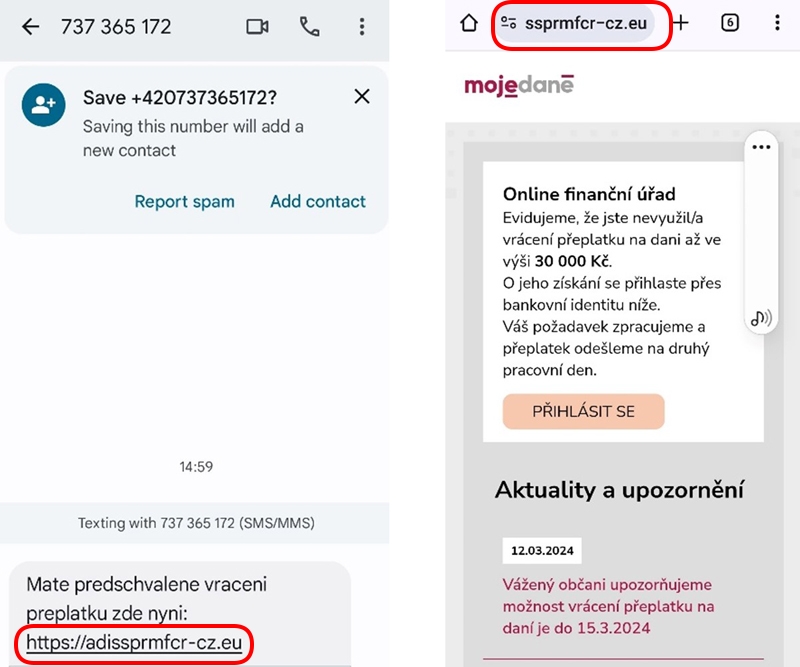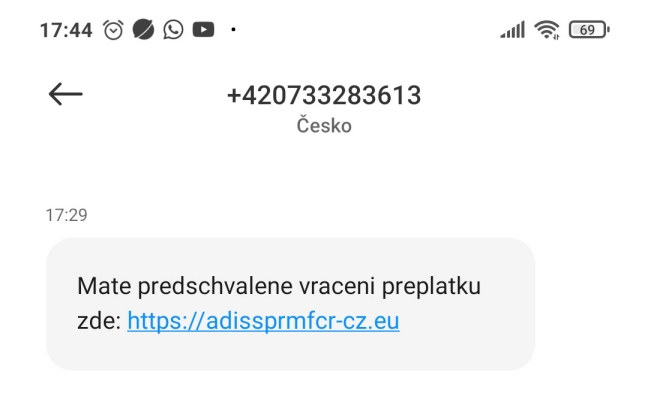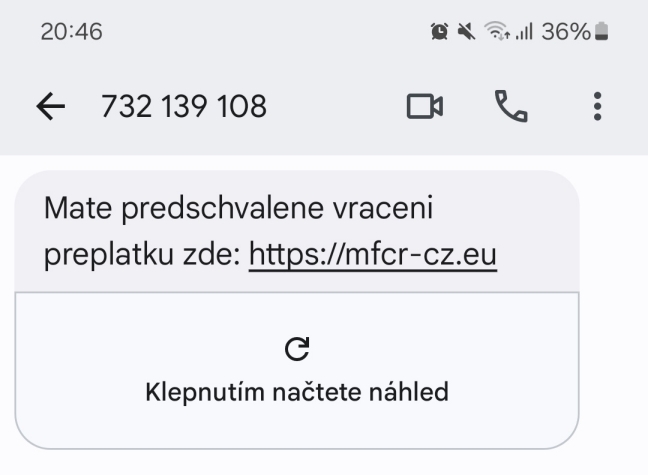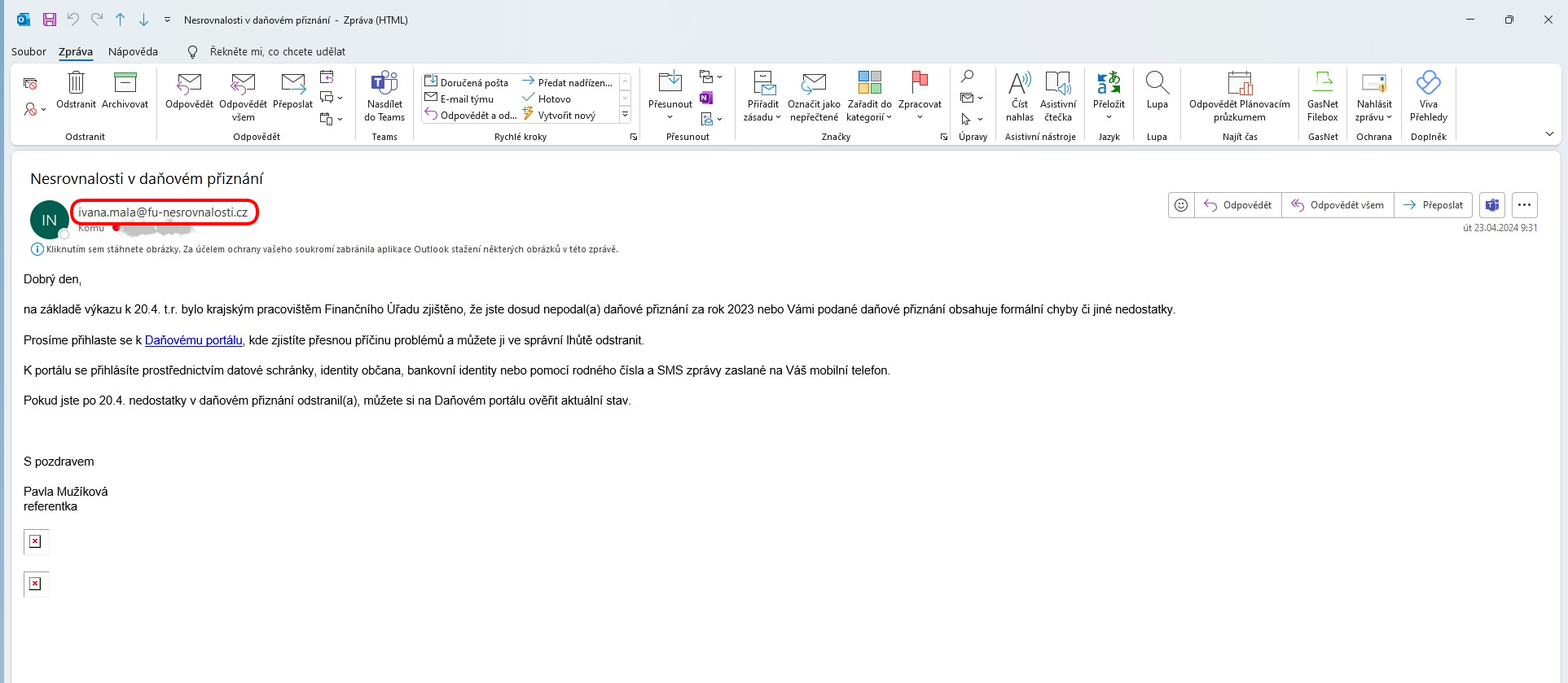Tax Return Season in Czech Republic: Beware of Scams!
The month of March is traditionally associated with filing tax returns or receiving refunds from the state. This attracts various fraudsters who try to take advantage of the situation.

The Financial Administration of Czech Republic again warns about scammers who are aware that people are under more time pressure during this period, whether they want to file their tax returns on time or are already waiting for the settlement and want to know how much they will get refunded by the state.
Scam Phone Calls and SMS Messages Are Back
How does the scam most commonly occur?
-
Scammers try to contact you by phone. The call is made from unknown numbers, with either a Czech or foreign country code.
- Be cautious that it is not difficult for scammerssters to spoof identities, meaning the name that appears on your caller ID may show something like
Financial Administration,Bank, orCzech Police. Do not trust these callers just because a seemingly credible name appears on your screen.
Scam phone calls are called vishing, and if you want more details, check out our article on this topic.
- Be cautious that it is not difficult for scammerssters to spoof identities, meaning the name that appears on your caller ID may show something like
-
If you answer the call, an automated message will inform you that you have either an overpayment or a tax shortfall (for example, in the thousands) and will ask you to press a specific key.
-
Subsequently, you will receive an SMS message with a link to a scam website (this is called smishing ), which mimics the official MOJE daně portal located at
adisspr.mfcr.cz.The goal is to trick you into logging into Bank ID on the fake page and then misuse this access.
Example of a scam SMS on the left and a fake website
ssprmfcr-cz.euon the right. Notice the URLs attempting to imitate the official MOJE daně ("MY taxes") portal.
Other examples of scam SMS messages, as warned by the Ministry of Finance:


Be Aware of Phishing Too!
The Financial Administration also warns about phishing . A sample phishing attempt was captured in the image below.

Other users received a scam email from the address [email protected]. It is important to note that such an official email address from the tax office does not look like this. An official email, for example, for the Brno office, would be [email protected].
How to Recognize a Scam?
-
First of all, it is important to realize that the Financial Administration automatically pays out overpayments based on the tax return. This means that no additional steps are required on your part.
-
The Financial Administration will never send links to websites via SMS or email.
-
The Financial Administration does not use automated voice systems to contact you.
-
And lastly, the Financial Administration will never ask you for access to your banking details.
What to Do If You Suspect a Scam?
- If you realize during the call that it's a scam, hang up immediately.
- Do not click on any links in the SMS or email that seems suspicious.
- If you have any doubts or other questions, contact the Financial Administration through official channels.
Final Safety Recommendations
-
How to easily and effectively increase cybersecurity in your company? Check out how Redamp.io can help protect you.
-
Stay informed! Read our blog and follow notifications in the app about the latest threats we are monitoring for you.
-
Be cautious! Pay special attention to:
- phishing (fraudulent emails),
- smishing (fraudulent SMS messages),
- vishing (fraudulent phone calls),
- quishing (fraudulent QR codes),
- and ransomware (ransomware software).